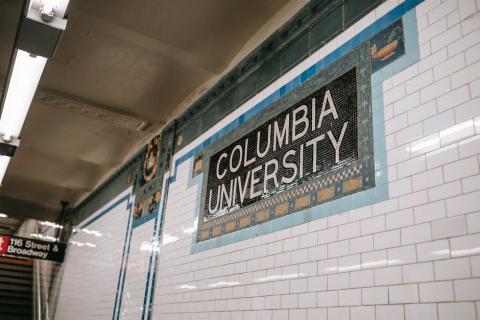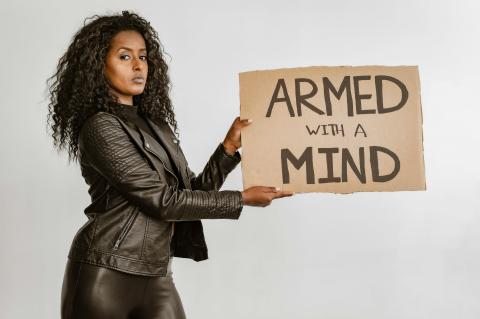How To Get Into Columbia University
Feb 08,2022
Columbia University has an overall admission rate of 3.9%. To put that into perspective, that's less than 4 students out of 100.
But having a high GPA doesn't guarantee your admission.
Many students have dreams of getting into an Ivy League school, but few ever make this a reality. And the reason? It's not a matter of luck.
Aside from working hard, a successful application hinges on knowing what's required years before you even apply.
But getting into Columbia University doesn't have to be a far-off dream. In our guide, we'll outline exactly what you need to do, from studying for the SATs to acing your supplemental essays.
And while it won't be a cakewalk, it's certainly possible to increase your chances with the right preparation. Let's dive in!
Why Should You Attend an Ivy League School Like Columbia?
Columbia was started in 1754 by the royal charter of King George II. This makes it the fifth oldest institution of higher education in the United States.
The fact that it has so many famous alumni also shows the world-class education this school gives. Famous Columbia alumni include:
- -Former US President Barack Obama
- -Investor Warren Buffet
- -Actress Julia Stiles
- -Science fiction writer Isaac Asimov
-Some of the best-known programs at Columbia are its business, social science, and writing programs. Columbia is also home to the prestigious Pulitzer Prize!
But it doesn't matter which program you attend. Being an Ivy League graduate means you'll have more opportunities than the average college graduate.
This is because Ivy League graduates are seen as highly intelligent, dedicated, and hard-working. And this can lead to higher job offers right out of college.
Columbia University GPA Requirements
If you're wondering how to get into Columbia University with a low GPA, it's just not possible.
Yes, you can make up for a slightly lower GPA with near-perfect SAT scores and outstanding extracurriculars. But having a high GPA is crucial to even being considered.
That being said, Columbia admissions does look at your application holistically. This means that if you got a bad grade at the start of high school or in one course, you may still have a chance if you can show growth.
Take note that many schools list the minimum GPA you should have to apply. This minimum GPA is the bare minimum. If you meet the minimum GPA, this only means that your application won't get immediately rejected.
The average high school GPA of incoming Columbia freshmen is 4.12. Now, how is that even possible when GPAs are calculated on a 4-point scale?
This is because Columbia looks at what's called a weighted GPA. A weighted GPA means that it includes the difficulty of your classes in the calculation.
So while regular classes have grades on a 4.0 scale, advanced classes are on a 5.0 scale. In a lot of these classes, an A grade translates to 4.5 on the scale.
So with Columbia's weighted GPA, this means that students are getting As in their classes. But it also means that they're taking advanced courses like AP and IB. We'll get into these a little later.
Remember that Columbia will also look at your GPA over time. You want to keep your grades high in your junior and senior years especially.
You also want to show either improvement over the years or a steady, high performance.
SAT Scores
Applying to Columbia doesn't stop at your GPA. You also have to have a very high (or nearly perfect) SAT or ACT score. Keep in mind that Columbia doesn't have a preference for which test you take.
See which one you tend to do better on during prep and think about which test you want to focus on.
Remember that the maximum SAT score is 1600. The SAT scores of students admitted to Columbia range between 1450 and 1560.
Even if your GPA is higher than 4, a low SAT score will send your application straight to the rejection pile. The only exceptions to this are if a student fills an institutional need or is an exceptional standout, which is rare.
Score Choice Policy
Each school has what's called a score choice policy. This means that you can decide which test dates you want schools to consider.
Columbia's score choice policy is "Highest Section." This means that the people who read your application will look at your highest scores in each section. This will be across all the SAT tests you've taken!
For example, let's say you took the SAT twice. You did a lot better on math the first time but did better in English the second time.
Instead of having to decide which test scores to send the school, your application readers will only consider your best scores on both tests.
Some students take advantage of this by doing something called Superscoring. This is where you re-take the SAT but focus on a different subject each time.
By focusing your energy on one subject at once, you can improve each subject score to create a high SAT score. Remember that this only applies to schools that take the Highest Section score policy, so make sure to do your research!
Keep in mind that most schools also want you to send all your test scores, even if they don't consider all of them when making a decision.
ACT Scores
For Columbia, the average ACT score is between 33 and 35. While Columbia says it doesn't have a minimum ACT requirement, don't be fooled!
You'll need at least a 33 on your ACTs if you want to have an easier time in the application process. Remember that many applicants score 34 and above, so a 33 won't look as strong in comparison.
If you decide to take the ACT instead of the SAT, you do have one big advantage—you can decide which test scores to send.
So even though Columbia admissions will only look at your highest SAT subject scores, they'll still have all your test scores.
With the ACT, you can technically take the test as many times as you want and send only the best one.
The disadvantage to this is that you can't use the Superscore method. This means that when you send in your test, the admissions team will look at the whole test. They won't look at your subject scores separately like with the SAT.
If you're planning on sending your ACT scores to Columbia, focus on test prep and improvement. Aim for scoring a 35 and send that test to Columbia.
With both the ACT and SAT, you must take the essay section. This is an optional section, but Columbia requires it.
Recommended High School Classes
The high school classes you take affect both your application and your preparedness for Columbia.
Columbia recommends taking:
- -3 to 4 years of math (especially pre-calculus)
- -3 to 4 years of history/social studies
- -3 to 4 years of a foreign language
- -3 to 4 years of a laboratory science
- -4 years of English literature/composition
You also want to look at what your desired major recommends. For example, Columbia's engineering program recommends one year of physics and one year of chemistry, as well as calculus.
If you're not sure which courses to take, contact a program representative at Columbia. They can help advise you on what courses to take as you go through high school.
What About AP and IB Courses?
You may not want to take any advanced classes because you're worried that their difficulty will bring down your GPA. But if you want to get into an Ivy League school, this is a mistake.
Remember how Columbia considers a weighted GPA? Well, let's say you have a 4.0 weighted GPA.
This doesn't mean you'll get automatic admission to a prestigious college. You could be getting all As in lower-level classes, or you could be getting all Bs in advanced classes.
And guess which one Ivy Leagues like Columbia will prefer. They're more likely to prefer the student who has Bs in advanced classes.
Why? Because that student is more willing to take on academic challenges. This student is also more likely to excel in Columbia's courses as well.
So to boost your qualifications for Columbia University, take AP and IB courses wherever you can (especially in your future study area).
If your school doesn't offer many challenging courses, see if you can take some courses at a community college.
Extracurriculars
Extracurriculars help you stand out amongst other students with similar grades and SAT scores to yours.
So how do you differentiate yourself from them?
Think about where you excel, and think about how that ties to the rest of your application. Do any of your extracurriculars show your dedication to a field?
These could include publishing a mobile app online, writing your first novel, or doing well in a Science Olympiad. These show that you managed to create meaningful achievement through dedication to a subject over time.
Columbia is also looking for three aspects to extracurriculars:
- Significance
- Integration
- Continuity
Significance is the most important part of your extracurriculars. The application reviewers want to see that you've done things that give you credibility. These activities include serious research experience and publications.
Columbia also wants to see how your extracurriculars integrate into your whole story. Compare these two students:
- A math student with sports volunteer experience
- A math student who tutors disadvantaged math students for free
Finally, Columbia also looks at continuity. They want to see that you've shown a time commitment to your extracurriculars. Otherwise, it could look like you only joined those extracurriculars because of your application.
Joining an honor society in high school is also a great way to show your commitment to academics. Honor society networking opportunities can help you get volunteer experience. They can also help you get internships that you can write about in your application.
Your Supplemental Essays
During the Columbia University Admissions process, you need to write six supplemental essays.
Three of these are three short essay prompts (200 words or less) and three are list questions (75-100 words). You must write all six to be considered for admission.
These essays are meant to be thought-provoking and challenging. They include questions about:
- Books/essays/poetry you enjoyed most while at school
- Why you want to attend Columbia
- How your experiences attract you to your chosen field
Make sure to give yourself enough time to write several drafts of each essay. For example, if you're not a huge fan of reading, you'll want to plan enough reading in the year before the essays so you can craft a good one.
Make sure to draw on all your experiences to answer the questions, from volunteer to work experience. Even if you only held a part-time job at a shop, dig into the experience for valuable lessons you learned.
Letters of Recommendation
You will need three letters of recommendation to get into Columbia.
Two of these letters must be from your teachers. These teachers should know you well and have good knowledge of your academic work (especially in difficult classes). These will give more credibility and strength to your application.
The third letter must be from a counselor. And while Columbia allows for one supplemental letter, only do this if it adds to your application.
To get the best letters possible, make sure to ask early. This will also help you give your teachers and counselor any extra information if they need it.
Look at online samples of recommendation letters, especially ones that got students into Ivy League schools. Take notice of how the recommenders talked about the students. This includes their academic achievements and personality.
Make the Columbia Dream Come True
Applying to Columbia University can seem daunting, but preparedness is the key to a successful application.
Start early and stay focused on taking on courses and meaningful extracurriculars. Remember to show the admissions officers your dedication to your field!
If you feel overwhelmed, write everything down in a step-by-step plan. And if you need more support in getting there, then why not become a member of Honor Society?
Our networking and leadership opportunities can help you be an even stronger candidate. Become a member today!





